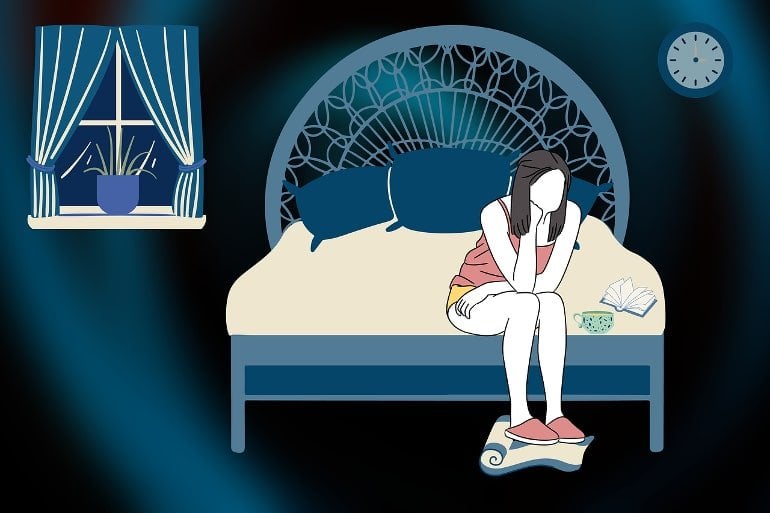Sleep Deprivation and Probiotics: A Solution for Oxidative Stress and Inflammation
Summary:
Probiotics have recently gained attention for their antioxidant and anti-inflammatory properties. Researchers at the University of Camerino tested probiotics to counteract oxidative stress and inflammation induced by sleep loss, concluding that probiotic supplementation could be beneficial in mitigating these effects.
Sleep and its Impact on Health
Sleep is a crucial behavior that occupies a significant portion of human life, essential for both physical and mental well-being. Chronic Sleep Restriction (CSR), characterized by habitual sleep durations of less than seven hours but more than four hours per night, can lead to various cognitive impairments and is associated with an increased risk of neuropsychiatric disorders and other health conditions.
Link Between Sleep Deprivation and Inflammation
Insufficient sleep, which affects approximately 30% of adults and adolescents, is linked to low-grade inflammation characterized by elevated inflammatory markers in the blood and brain. Additionally, sleep deprivation can lead to the accumulation of reactive oxygen species (ROS) and reactive nitrogen species (RNS), causing oxidative stress-related cellular damage and increasing the risk of various diseases.
The Role of Probiotics in Reducing Inflammation
Probiotics have garnered interest for their ability to alleviate inflammation-related illnesses through various mechanisms, including balancing gut flora, improving gut permeability, and modulating immune function. Studies have shown that probiotics can regulate microglia activity, prevent neuroinflammation, and interact with the host to modulate oxidative status, ultimately exerting antioxidant and neuroprotective effects.
Impact of Probiotics on Sleep Quality
Research suggests that sleep disruption can alter gut microbiota composition, leading to immune reactions and inflammation. Probiotic supplementation has been shown to improve sleep quality by reducing indicators of impaired sleep quality. Administering probiotics may ameliorate sleep disturbances and promote better overall sleep health.
Study on Probiotic Supplementation and Sleep Deprivation
A multidisciplinary team conducted a study to investigate the effects of a multi-strain probiotic formulation on oxidative stress and inflammation induced by chronic sleep restriction. The results showed that probiotic supplementation reduced oxidative damage, regulated gut-brain axis hormones, and attenuated inflammation caused by sleep loss, suggesting that probiotics could be a promising strategy to counteract the negative effects of sleep deprivation.
Conclusion
Probiotics offer a potential solution to mitigate oxidative stress and inflammation associated with inadequate sleep. By enhancing antioxidant capacity, regulating gut-brain axis hormones, and reducing inflammation, probiotics may play a crucial role in promoting overall health and well-being, especially in individuals experiencing sleep disturbances.
Source: University of Camerino
the topic of the impact of social media on mental health in today’s society:
In today’s digital age, social media has become an integral part of our daily lives. From keeping in touch with friends and family to getting news updates and entertainment, social media platforms like Facebook, Instagram, Twitter, and Snapchat have revolutionized the way we communicate and interact with the world. However, with its many benefits come some drawbacks, particularly when it comes to mental health.
Numerous studies have shown a link between excessive use of social media and increased rates of anxiety, depression, and feelings of loneliness. The constant exposure to carefully curated images and posts of other people’s seemingly perfect lives can lead to feelings of inadequacy and low self-esteem. This phenomenon, known as “social comparison,” can have a detrimental impact on one’s mental well-being, as individuals may feel pressured to live up to unrealistic standards set by others on social media.
Moreover, the addictive nature of social media can also contribute to mental health issues. The constant need to check notifications, likes, and comments can lead to a cycle of seeking validation and approval from others, which can be harmful to one’s self-esteem. This constant need for validation can also lead to a fear of missing out (FOMO) and can exacerbate feelings of anxiety and stress.
Additionally, cyberbullying and online harassment are prevalent on social media platforms, and can have severe consequences on one’s mental health. The anonymity of the internet can embolden individuals to say hurtful things that they might not say in person, leading to feelings of shame, embarrassment, and isolation for the victim. The constant exposure to negative comments and messages can take a toll on one’s mental health and can lead to feelings of helplessness and despair.
Despite these negative impacts, social media can also be a valuable tool for promoting mental health awareness and support. Many individuals use social media as a platform to share their struggles and seek support from others who may be experiencing similar challenges. Online support groups and mental health advocacy organizations have utilized social media to reach a wider audience and provide resources and information to those in need.
To mitigate the negative effects of social media on mental health, it is essential for individuals to practice mindful and intentional use of these platforms. Setting boundaries around screen time, taking breaks from social media, and curating one’s feed to include positive and uplifting content can help protect one’s mental well-being. Additionally, seeking support from mental health professionals and engaging in offline activities can also help maintain a healthy balance between online and offline life.
In conclusion, while social media has undoubtedly changed the way we connect and communicate with others, it is crucial to be mindful of its impact on our mental health. By being aware of the potential risks and taking proactive steps to protect our well-being, we can harness the positive aspects of social media while minimizing its negative effects on our mental health.


